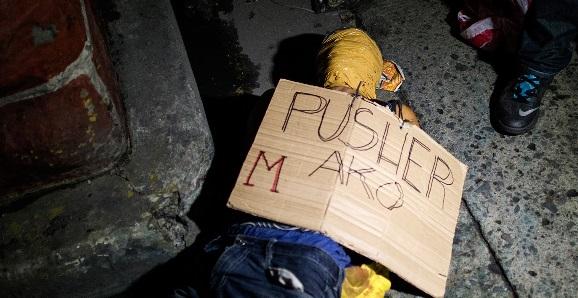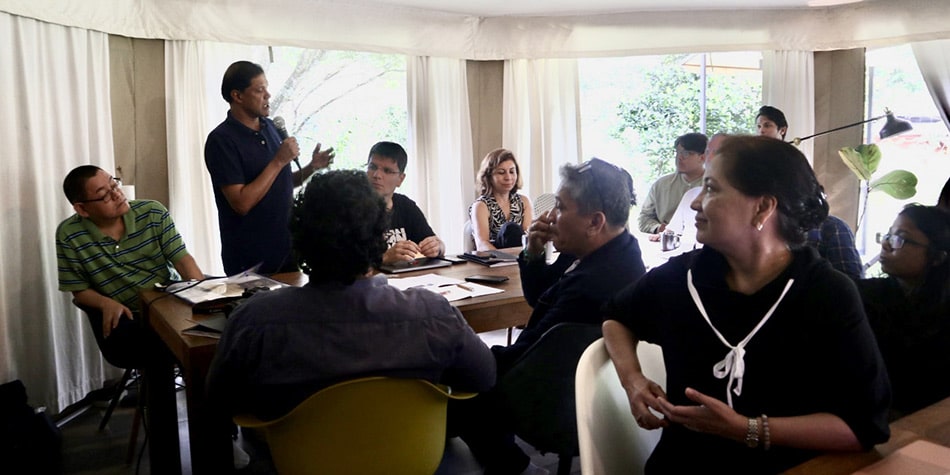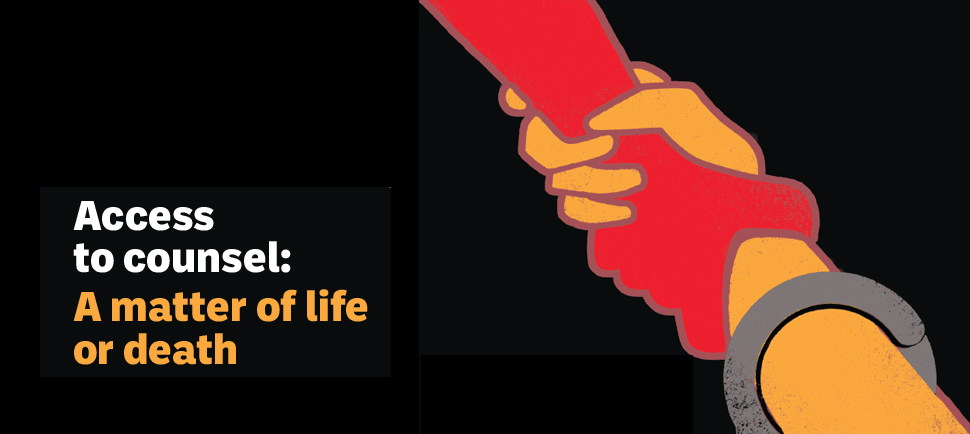
Congress should block effort to reintroduce death penalty in the Philippines
Asia
On 29 November 2016, the Sub-Committee on Judicial Reforms of the House Committee on Justice, which is chaired by Congressman Marcelino “Ching” Veloso, approved a bill restoring the death penalty in the Philippines by railroading the proceedings in the committee and ignoring important questions from other lawmakers questioning the need for the legislation or its urgent passage.
The decision to approve such a bill by the sub-committee was done with so much haste that there was not even a report presented, as is the normal practice, on the discussions and information presented in the previous hearings.
The Philippines is a State Party to the Second Optional Protocol to the International Covenant on Civil and Political Rights, which means that it is obliged not to carry out executions within its jurisdiction and not to reintroduce the death penalty.
The Philippines has always been viewed as a regional and global leader on the drive to abolish the death penalty around the world. Bringing back the death penalty into its laws would be an enormous step backward for the country, signaling a comprehensive degradation of respect for the right to life and other international legal obligations.
The UN General Assembly has repeatedly adopted resolutions by overwhelming majorities, calling on all States that retain the death penalty to impose a moratorium on executions with a view to abolishing it.
We categorically and absolutely oppose the death penalty in any and all circumstances and consider its use to be a violation of the right to life and freedom from cruel, inhuman, or degrading punishment.
It cannot be emphasized enough that significant and overwhelming evidence shows that the death penalty is not effective at deterring crime at a greater rate than alternative forms of punishment.
We call on the Government of the Philippines to instead invest in improved detection and investigation techniques and capacity, and improve the effectiveness and efficiency of the justice system. These measures are more likely to achieve real results in reducing crime.
We strongly urge members of the House of Representatives of the Philippines to ensure their discussions in the next few days on this bill restoring the death penalty are based on evidence and facts.
We strongly urge members of the House of Representatives of the Philippines not to view this as a purely political exercise and instead seriously consider not only what the impact of the passage of this bill will have on the international obligations of the Philippines, but also on how it would affect the notions of justice and human rights in the country.
We appeal to members of the House of Representatives of the Philippines to stop further attempts to reintroduce the death penalty and to block any legislation that subverts human rights.
Co-signatories:
1. Alcohol and Drug Foundation (Australia)
2. Alyansa Tigil Mina (Alliance Against Mining) (Philippines)
3. Amnesty International
4. Andrey Rylkov Foundation for Health and Social Justice (Russia)
5. Artikulo Tres Human Rights AllianceInc (Philippines)
6. Asian Federation Against Involuntary Disappearances (AFAD)
7. Asian Forum for Human Rights and Development (FORUM-ASIA)
8. Ateneo de Davao Legal Aid Office (Philippines)
10. Canadian HIV/AIDS Legal Network (Canada)
11. Centro de Investigación Drogas y Derechos Humanos (CIDDH) (Peru)
9. Bernice C.Mendoza, Lawyer (Philippines)
12. Charles Hector, Human Rights Defender and Lawyer (Malaysia)
13.Coalition Against Trafficking in Women – Asia Pacific
14. Colegio de Abogados y Abogadas de Puerto Rico
15. Collectif français Libérons Mumia
16. Commission on the Disappeared and Victims of Violence (KontraS) (Indonesia)
17. Death Penalty Focus
18. Defend the Defenders (DTD) (Philippines)
19. Ensemble Contre la Peine de Mort (ECPM)
20. FIDH – International Federation for Human Rights
21. Focus on the Global South
22. Forum Droghe – Italia (Italy)
23. Housing Works (United States)
24. Human Rights Online (Philippines)
25. In Defense of Human Rights and Dignity Movement (Philippines)
26. Indonesian Legal Aid Foundation (Indonesia)
27. Indonesian Legal Roundtable (Indonesia)
28. Institute for Policy Research and Advocacy (ELSAM) (Indonesia)
29. International Centre for Science in Drug Policy (ICSDP)
30. International Commission of Jurists (ICJ)
31. International Drug Policy Consortium
32.International Federation of Action by Christians for the Abolition of Torture
(FIACAT)
33. Law Enforcement Against Prohibition (Australia)
34. LBH Masyarakat (Indonesia)
35. M.Ravi, Human Rights Advocate (Singapore)
36. MADPET (Malaysians Against Death Penalty and Torture) (Malaysia)
37. Malaysian Bar
38. Mamamayan Tutol sa Bitay (Philippines)
39. MARUAH (The Working Group on an ASEAN Human Rights Mechanism-
Singapore)
40. Mary Jane N. Real, Women"s Human Rights Advocate (Philippines)
41.Movement of Attorneys for Brotherhood, Integrity, and Nationalism (MABINI)(Philippines)
42. NGO 4 Life (Montenegro)
43. Observatory of Crops Declared Illicit (Colombia)
44. Penington Institute (Australia)
45. Philippine Alliance of Human Rights Advocates (PAHRA)
46. Philippine Human Rights Information Center PHILRIGHTS
47. Purple Action for Indigenous Women’s Rights (LILAK) (Philippines)
48. Reprieve (Australia)
49. Reseau d’Alerte et d’Intervention pour les Droits de l’Homme (RAIDH)
50. Ricardo Fernandez, Lawyer (Philippines)
51. Romanian Harm Reduction Network (Romania)
52. Sentro ng mga Nagkakaisa at Progresibong Manggagawa (SENTRO)
(Philippines)
53. Singapore Anti Death Penalty Campaign (SADPC)
54. Social Watch (Benin)
55. Syndicat national des agents de la formation et de l’education du Niger
(SYNAFEN)
56.Taiwan Alliance to End the Death Penalty (Taiwan)
57. TB/HIV Care Association (South Africa)
58. Todung Mulya Lubis, Lawyer (Indonesia)
59. Tyrell Haberkorn, Political and Social Change, Australian National
University
60. Union contre la Co-infection VIH/Hépatites/Tuberculose (UNICO) (Ivory Coast)
61. Vietnam Independent Civil Society Organizations Network (VICSON)
62. Vietnamese Women for Human Rights
63. WANEP GUINÉE-BISSAU (West Africa Network for Peacebuilding) (Guinea Bissau)
64.We Believe in Second Chances (Singapore)
65. West Africa Drug Policy Network (Ghana)
66. World March of Women (Philippines)
67. Zimbabwe Civil Liberties and Drug Network (Zimbabwe)
68. Sant’Egidio
69. Iran Human Rights
70. Murder VIctims’Families for Human Rights (MVFHR)
71. The Advocates for Human Rights
72. World Coalition Against Death Penalty
Categories
Philippines






